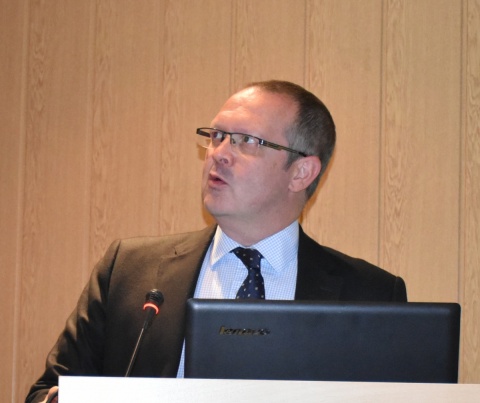Article • Vocal pathology
New voice app to detect diseases
A new app measuring the biomechanics of the voice could impact the market of ENT and speech pathology products.
Report: Mélisande Rouger

Acoustic tools that provide glottal source analysis, which are traditionally used in the diagnosis of vocal chords pathology, could soon become obsolete due to a recently launched app that has introduced a highly reliable and entirely mobile technology. Called Voice Clinical Systems, the new device uses the self designed Wave Tracking technology, which focuses on the signal emitted from the patient’s lips. The patient only has to speak for three seconds, directly into a tablet or smartphone, and a diagnosis follows within minutes.
The app is likely to resonate in the vocal chords pathology world, as its correlation with the clinic is unheard of, according to Dr Carlos Ramirez, a Madrid-based ENT physician, who co-developed the app. ‘The information we are extracting has nothing to do with what we’ve used previously. Until now, the analysis we have used had very little clinical correlation; these tools were not describing the pathology the patient might have been suffering. Our app offers information that has a far better correlation with the clinic than the previously used technologies,’ he pointed out.
As reported, Voice Clinical Systems works by taking a sample of the patient’s voice fed directly into a tablet or smartphone. The recording is then sent directly to an online server, for analysis. The information extracted is then returned shortly to the sender in the shape of a record, which is tailored to the on-going investigation. This mobile approach enables physicians to record samples anywhere without the heavy, costly equipment usually needed for voice analysis. ‘Voice analysis systems currently used require hardware and a computer, which is only available at the healthcare facilities,’ Ramirez said. ‘Mobility offers flexibility and brings advanced voice analysis technology to places which may not have had the necessary infrastructure before.’
The app offers three types of medical reports, which can differentiate between organic and functional pathology. All patient data are anonymized and the reports only feature the age and gender of the patient. The one-page long basic report is called the clinical screening; this can be used by primary care professionals and general practitioners to help them refer patients to specialists. It includes straightforward colour-coded graphs, in which red is pathology and green normal. For patients in need of follow-up, specialists may use the intermediate report, which provides them with an alteration index. Information contained in this report may be particularly useful in patients who have received polyp surgery or are undergoing rehabilitation to correct a functional defect. The three-page report is a more complete document, and will help ENT and speech therapists to help diagnose pathology with a high degree of subtlety. Because voice can be an indication of neurologic disorders before any other symptoms develop, neurologists may also use the app for the early detection of Parkinson’s disease.
The app only targets HC professionals for the moment, but it may become available to patients within two years, Ramirez said. ‘In that case doctors will still have to interpret the report, but,’ he surmises, ‘patients could definitely go visit a specialist with their report in hand.’ The cost of the report ranges between €10 and 20.
Launched in English and Spanish in December, the app has been used in two private institutions in Madrid and has already received positive feedback from physicians who have tested it at various institutions across Spain. Ramirez: ‘Voice Clinical Systems has been tested to check its correspondence with clinical diagnosis in 2,000 cases; the correspondence with the clinic has been higher in 99% of the cases.’
The app (Android and iOS) can be downloaded here.
25.04.2017





